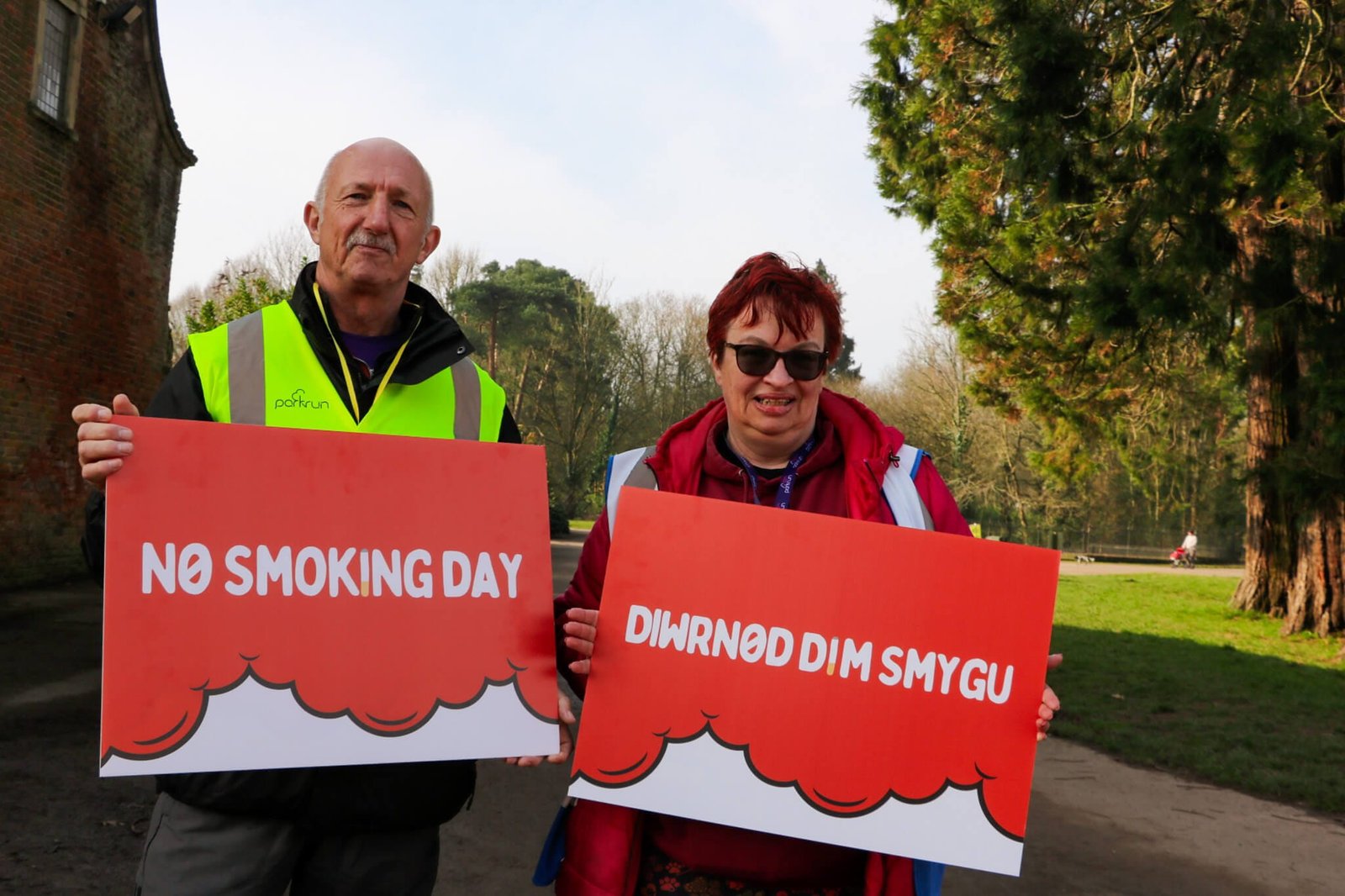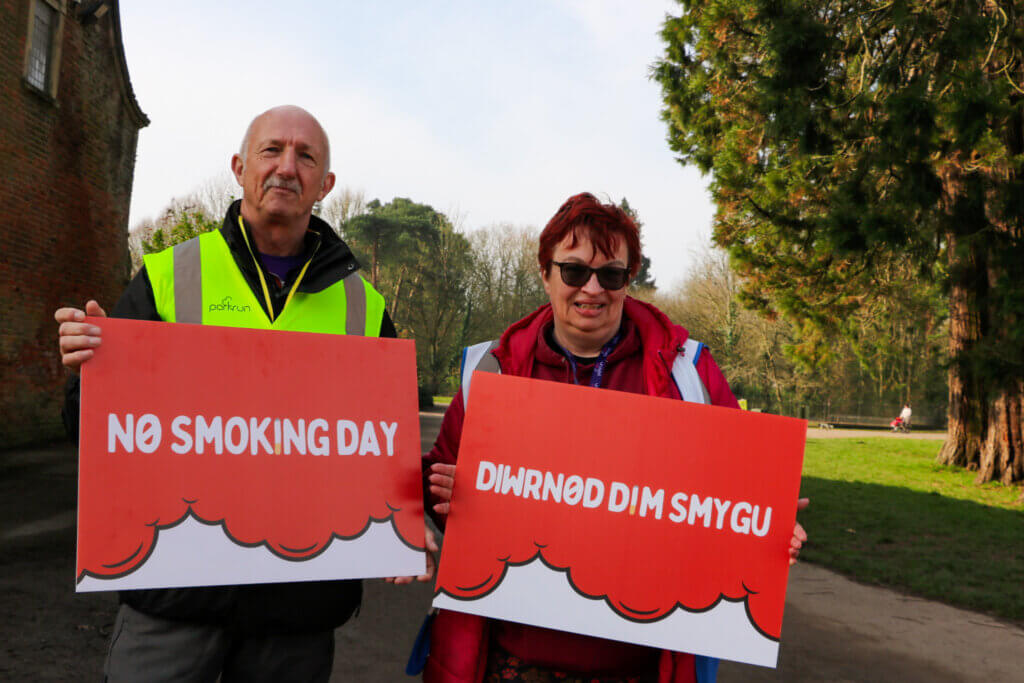 Across Wales 17% of mums-to-be smoke throughout their pregnancy, with prevalence highest among pregnant 16 to 19-year-olds at 35%.
Across Wales 17% of mums-to-be smoke throughout their pregnancy, with prevalence highest among pregnant 16 to 19-year-olds at 35%.
Jodie Foran is a Maternity Care Assistant based at the University Hospital of Wales in Cardiff who specialises in supporting pregnant women to quit smoking. She told us about the women she works with and the challenges they overcome to quit the habit.
How did you come to work in your current role?
I was working as a band 2 HCSW on the postnatal ward at the Heath hospital part time doing mostly night shifts. The job was advertised for a band 3 full time position for a Maternity care assistant specifically for Smoking Cessation. Most of my experience and training has been centred around supporting new parents with feeding their babies which at times has included motivational interview skills to help them achieve their goals. I applied for the position because I was looking for a new challenge and an opportunity to progress in my job.
Can you tell us about the women you work with?
Every woman I work with is either a smoker, lives with a smoker or may have recently quit smoking but still requires ongoing support to stay quit. So far since January 21 the percentage of smokers at booking is roughly 8.4%
Generally the people I work with are aware that smoking can cause harm during pregnancy and to the health of their baby but it’s also very apparent that they don’t always have the correct information on the subject. I often hear things that have been ‘heard’ from friends and family members that have smoked during pregnancy but had no problems, old wives tales that play down the effects, research conducted on the internet and misinterpreted information.
Why, in your experience, do many of them find it challenging to quit smoking during pregnancy?
I hear many different reasons why people find it so difficult to quit smoking during pregnancy. Addiction is the driving factor for most as this doesn’t change when you find out you’re pregnant. For some it then causes further concern because they’re under more pressure to try and beat it under a time constraint. Stress, mental health problems, day to day pressures, problems in the home life, relationship difficulties, habit, fear of losing a coping mechanism, fear of losing friends or family members if they need to stay away from other smokers, fear of losing part of their identity or gaining weight are all very common things I hear very often.
How do you encourage them to think about quitting smoking?
I provide them with the correct information and suggest other ways of replacing those things they fear losing. I try to have an informal chat about their experiences and their smoking habits and work with them to make a plan going forward. Some people are ready to quit and are eager to get any help that’s offered and others need a bit more time and support to think about the pathway that will work best for them in their day to day life.
What support do you offer them to quit smoking?
I mostly support people over the phone, by text or WhatsApp but I’m also able to arrange to see them face to face at their antenatal appointments. I get a list of people interested in having a chat about smoking sent to me electronically every Monday via email. I’m based in antenatal clinic most days so am often asked to see patients during an appointment and I also have referrals sent by my colleagues as and when they come across someone who would like some help. I’m available to be contacted Monday to Friday 9-5 but I often answer texts and calls outside of those hours to try to fit in as best I can with busy lives.
I work in the hospital but am also part of the team at Help Me Quit Wales so can complete a referral with them for anyone who would like to try a structured quit attempt.
What differences do you see in women when they have successfully quit smoking in pregnancy?
First of all I tend to notice the pride and confidence they feel in themselves, I think taking on and beating something like an addiction is so powerful and gives a huge sense of empowerment to the individual. A lot of people really want to quit but doubt their ability, so start off believing they probably won’t achieve what they set out, so when they do, it opens up so many feelings.
One of the first women I supported was a smoker for over 10 years and told me she never thought she could do it and after not going a day without a cigarette in all that time she described her achievement as a dream come true.
I’ve also noticed that those who’ve managed to successfully quit are keen to help and encourage others to do the same. A great example of that was meeting a patient at an appointment, I had previously had trouble trying to get her to engage with any services and it turns out it was because she had been a smoker for such a long time and believed she was too far in her pregnancy for it to make any difference. A colleague of mine was also present at the appointment and happened to be an ex-smoker of over 30 years so I encouraged her to join the conversation and as a result of our time together the patient was inspired to show anyone who ever doubted her that she could also do the same. She was so grateful for a ‘real life’ example of what can be achieved with the right support and information.
What aspects of your role do you find most rewarding and most challenging?
I would describe all parts of my job as rewarding because everything I do is with a view to making a positive difference to someone else’s life. My favourite part is empowering people to believe in themselves and help them to discover strengths they didn’t realise they had, showing them that self belief, although hard to find at times, is one of the most effective tools we all have.
Of course it isn’t all positive so I do come across many challenges on a daily basis. It can be very hard to engage people in any conversation about them making such a huge decision like giving up smoking. People often assume that I’m going to lecture them or tell them what they should and shouldn’t be doing so I spend a lot of time reassuring and explaining what I do and what I can help with in a friendly and informal way.
A huge factor I find challenging with regards to engaging people is mental health difficulties. A lot of self doubt and low confidence in the people I support is as a result of this and that can mean they find it difficult to even talk on the phone never mind have face to face conversation. I’ve adapted the service to accommodate texting and WhatsApp messaging to try to give them another way they might feel more comfortable and as a result of this I do have some people I only talk to in this way.









